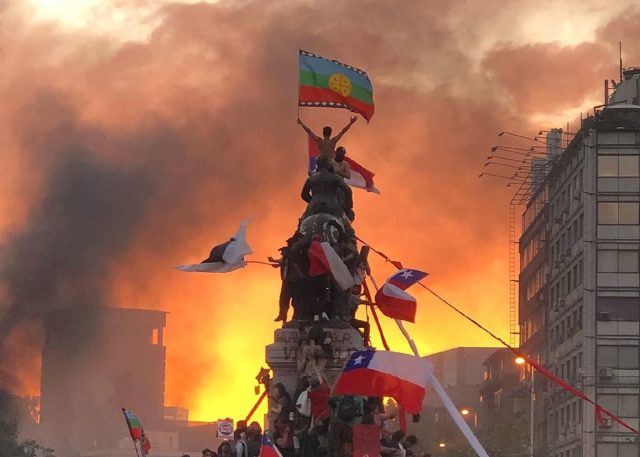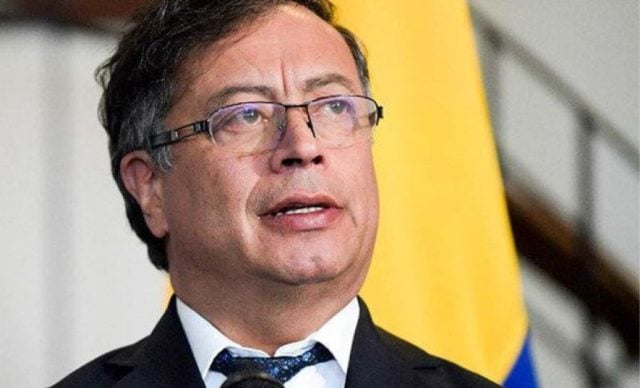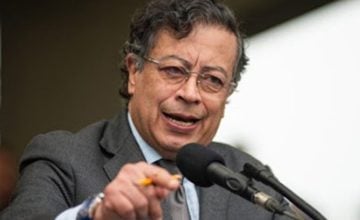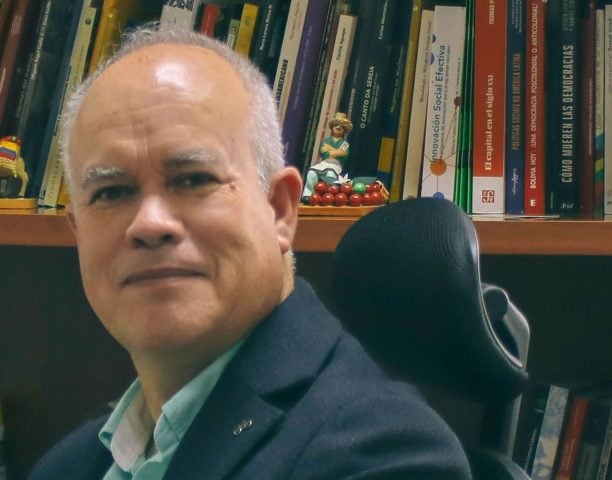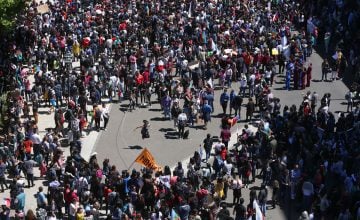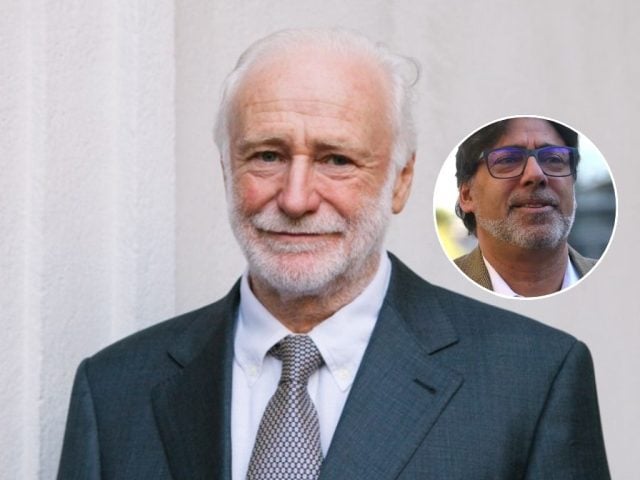Original article: Octubre del 2019 sigue y seguirá existiendo: El Viejo Topo de la historia siempre vuelve a emerger
By Javier Pineda Olcay
The Popular Uprising of October 2019 marked the beginning of a new political era in Chilean society. The marches and protests by millions from Arica to Magallanes constituted one of the highest mobilizations in the country’s republican history. What appeared to be a solid structure of institutional cement and concrete was nothing more than eggshells.
This revolutionary energy challenged a deeply unequal society, protested against the high cost of living, and the meager pensions and wages that barely allow ends to meet. It contested the political elite, including the National Congress, the judiciary, and most notably, the President of the Republic; it destroyed statues and symbols of colonization and oppression against the people, including Indigenous communities. This was a challenge to the regime established by post-dictatorship governments: a challenge to the economic and social consequences of neoliberal policies and a low-intensity democratic regime.
However, we were unable to build a constituent force capable of proposing a political, economic, social, and cultural project that would culminate in a new Constitution and tilt the political period opened by popular mobilization in favor of the marginalized sectors. The programmatic syntheses from social movements managed to cover only a limited programmatic dimension, lacking a comprehensive societal project. We also lacked the organic and territorial strength to persuade the working populace, in its diversity and fragmentation. To overcome the media apparatus requires not only social networks but also a deep-rooted connection with the people that we have yet to achieve.
As history has shown, behind fascism always lies a failed revolution. Pinochetism has lost its guise and is revealing its true self, growing within our society and taking the lead in the second constitutional process, which it too has failed in. They have not yet managed to tilt the political period in their favor, although a successful outcome in the upcoming presidential and parliamentary elections could be a first step toward that goal.
Ultimately, we find ourselves in a period of interregnum, where the old refuses to die, and the new is yet to be born. It’s a time when monsters emerge. However, the new does not necessarily mean better: the phase of “democratic neoliberalism” has already shown its exhaustion. Therefore, even if it can govern for a couple more years, it does not represent the new. What is at stake is whether projects can put an end to neoliberalism, either through authoritarian processes maximizing accumulation for the authoritarian sectors or through processes that expand the role of the people and allow for a change in the production and distribution regime of wealth generated by the working class in the country. In any case, we must consider that in times of interregnum, no victory or defeat is definitive.
As Miguel Enríquez stated, elections do not solve class problems; they merely pose them. The candidacy of Evelyn Matthei represents an attempt at a “grand coalition” to unite the political sectors that have governed over the last 30 years; the candidacy of José Antonio Kast embodies an authoritarian neoliberalism that also fails to address the issues raised by Chilean society in October 2019, yet it can maintain “order” through repression. Matthei, if unable to maintain order, may ultimately become just like Kast. If capitalism were a disease, neoliberal right-wingers merely represent new pains of varying magnitudes that distract us from the main suffering, as clearly exemplified by the experiences of our Argentine and Peruvian neighbors.
On the forefront, Jeannette Jara, with a program of concrete salary measures and initiatives aimed at reducing the cost of living for working families, could serve as a good analgesic while we search for (and construct) a cure for the ailment. Palliative care is better than pure and harsh pain.
Nevertheless, in these convulsive times globally, when the post-World War II world order is being challenged, and we face an unprecedented socio-ecological crisis, the old mole of history will inevitably rise again, sooner or later. In the meantime, our task will be to keep digging deep into the earth, unafraid of the darkness, preparing ourselves for the moment when we can see the sun.
